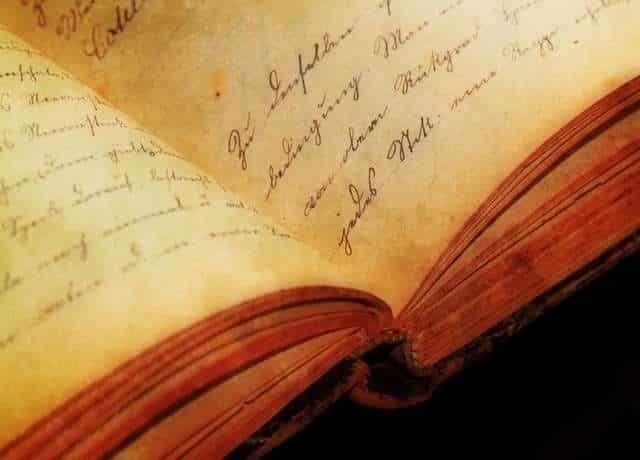
Anybody that takes reading seriously will treat their books as a valuable items.
This means preserving them too.
Books when not kept properly will have pages that start to turn yellow.
This can be painful for most of us that enjoy the art of reading. Which is why one may look for remedies to counter act things like this.
There are various measures you can employ to prevent your book pages from turning yellow and this post is specifically written for this.
I’ve been a lover of books from the age 10 and have had my fair share of experience with them.
Therefore below I’ll discuss the various measures you can put in place to ensure that you keep your books from turning yellow.
Direct light
When I refer to light I’m basically referring to all forms of light and not just natural light like the sun.
you want to ensure that you don’t expose your books to too much light because that will easily damage them.
For example, keeping your books in a space that exposes them to constant sunlight will create a high temperature environment.
This light will then damage the pages and have them turning yellow…therefore, it’s key that you avoid this.
All light exposure is basically not a great idea, whether natural or artificial.
Light causes damage and its effects are cumulative which means the more you expose your books to light the more damaged they get.
Ultraviolet radiation causes bleaching, discolouration and the breakdown of organic materials e.g. flaking of leather which can easily tear your book to pieces, weakening of bookcloth, embrittlement and yellowing of paper.
The bad part is that It is impossible to judge light levels accurately by eye and even on dull days light levels are often high.
Therefore you’re better off not storing books in a place that exposes them to light.
This way you can avoid the negative effects of light on your books.
Air circulation
A good strike of balance is what will ultimately protect your books from damage
If you care about books then put in place measures that will help you preserve them for longer.
This is why the points expressed in this post will help you prevent your books from yellowing as well as any other permanent damage that may render them useless.
Now that we’ve discussed some points let’s move on to the next big thing that is really overlooked by most people when it comes to taking good care of books.
This thing is, Air circulation.
To keep your books from damage you need a good amount of air in the space you intend to keep the books in.
This will help you avoid alot of temperature and humidity issues which are two of the big factors that can contribute to either the preservation or destruction of books.
You need your books stored in a space that allows for good air circulation and not extreme air circulation.
The reason for this is relatively simple.
When there’s high circulation of air in the place you’re keeping books in, you risk dirt and other air borne material moving around and eventually settling on your books. This is something you generally want to avoid.
When the air circulation is too low you face the Increased risk of mould and insect outbreaks due to the formation of microclimates.
Therefore you need a good amount of air circulating around the space preserving your books.
Just enough to avoid the high and low extremes that can damage your books.
Take note of humidity
With humidity you also have to strike a good balance between the two extremes (too high and too low).
The best Ideal levels of humidity for books are 68-72° F, with around 40-50% of relative humidity.
But you should Monitor temperature and humidity levels.
Excessive fluctuations in temperature and relative humidity can be particularly damaging to books.
For example, when your relative humidity is too high you will attract mold growth and insect infestations.
You’re also likely to encounter rusting staples, pins and clips.
Furthermore, there will be an Increase in the rate of chemical degradation of paper by acid- catalysed hydrolysis.
On the other hand when the relative humidity is too low you’ll experience reduced flexibility, particularly of parchment, vellum and leather.
If this is combined with high temperatures you’ll likely encounter embrittlement of binding materials, structures and leaves.
You also want to basically avoid fluctuating relative humidity because it can lead to the distortion of bindings and text blocks, especially if books of
different sizes are shelved together.
Therefore the ultimate ideal humidity level for a space storing books is 20°C to 22.2°C which is the same as 68-72°F.
Temperature control
Another key thing that has to be discussed is the temperature in the room or space housing the books.
When it comes to avoiding yellowing of books in general you need to know and understand the ramifications of temperature.
With books generally what you’re going for is a sweet spot…. you don’t want the temperature to get too high and you don’t want it to get too low.
When you’re storing books in an environment with high temperatures the result will be curling and Distortion of paper that will ultimately lead to your books deteriorating… High temperatures will also speed up the growth of mold which you should avoid at all costs because mold can easily spread.
When you store books in temperatures that are too low you basically risk your books being frozen which can ultimately tear your book apart… Low temperatures are generally not too problematic as compared to high temperatures.
With that said, you’re better off avoiding extremes because you don’t want your books freezing or around too much heat because that will easily destroy them..
Isolate yellowed books
Yellowing of books can easily spread from one book to another therefore you have to take very good care of your collection.
You’re better off doing regular checks on your books as well as keeping them in an optimal environment so you avoid any spreading that may deteriote your books.
Once you discover that some of your books are turning yellow you need to keep them isolated from the rest of your collection.
Most neglect this and end up with deteriorated books that could have been easily saved.
This is another reason why you should not have your book shelves over loaded with books…to the point where any form of deterioration cannot be avoided or effectively combated.
Ensure that your book shelves are stacked with a reasonable number of books so you can easily spot books turning yellow and remove them from your shelves.
The last thing you want to end up with is yellow books that have met their demise due to the fact that they hadn’t been packed properly.
Isolating yellow books can be effective when you can easily spot them and be able to do something about it.
Avoid cheap books
Ever heard of the saying “cheap things are expensive”?
It may seem like a saying without any deep meaning but it’s actually true and most people will attest to this.
The fact is, cheap things always have their Downside and in most cases sellers will not come out and tell you this. Which means you have to be selective with the things you buy.
Books are a great example… you should not go for cheap books because they’ll most likely deteriorate easily.
Which is why it’s always a good idea to basically go out and look for a reliable store to buy your books from.
Check the quality of the pages by flipping through them.. if its a new book, you can be guaranteed a bit of lifespan which is great…
If its a used a book however, it may take some extra effort on your part to actually make it last for long.
Books whether new or old can cause problems for your existing collection.
The books may start to deterioting and yellowing which can spread to other books if you don’t take special care to ensure that this is avoided.
Cheap books are more susceptible to deterioration so take note of this the next time you go out shopping for books.
Related Article
Additional Helpful Resources
How to Keep Your Books From Yellowing – Yahoo News
Want to Stop Your Book Pages from Turning Yellow? – Book Written
How To Prevent Books From Turning Yellow? – 1minutebook
How to Prevent Books From Turning Yellow – Our Pastimes

